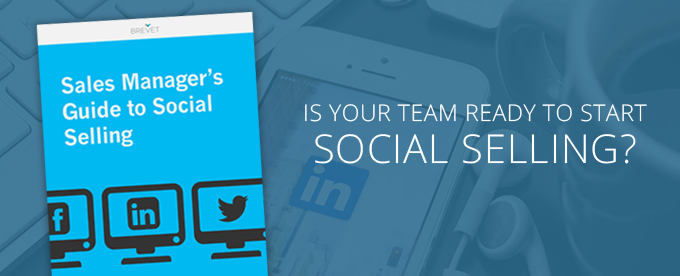There's a lot to be said about following a structured, logical process in sales. But just because you're using a disciplined sales methodology doesn't mean your prospect is following a rational approach to buying. In fact, science is increasingly showing just how illogical the decision making process can be for buyers. Luckily, as our understanding of how people make decisions increases, our ability to manage the sales process also increases.
The Science of Human Decision Making
In traditional research around decision making, people were seen as rational. In other words, we made choices in perfectly logical ways, using an analytical process that weighed alternatives and selected options that made the most economic sense. You were probably first presented this view of human decision making in a high school or undergrad economics class.
But no offense to your old economics teacher, it turns out this view of decision making is mostly wrong.
For those of us in sales, the fact that people aren't always rational decision makers probably comes as no surprise. You see firsthand buyers making a purchase decision that makes zero sense – choices that go against all of the evidence and facts presented. As a consumer yourself, you've no doubt experienced this reality as you agreed to pay more for a product or service just because it “felt right.” Remember that recent Apple product purchase? Tech specs and pricing be damned, there's just something about the emotional feel of that MacBook, right?
In this new model of decision making, people can’t be relied upon to make logical decisions or to always act in their own best interest. Often times, personal biases impair their ability to accurately analyze the data and absorb the facts. It’s sometimes hard to overcome the lure of the sexy new electronic gadget or a hot new car that just “speaks to you”, even though your brain tells you the purchase makes no logical sense.
Working the Logical and Illogical
Experienced sales reps know better than to just give information about their product or service and allow the buyer to make up their own mind. A strong seller tries to discover the needs of the client first, and then demonstrate how their product or service adds value. They try to address any possible objections, rational or not. Work hard to make the purchase decision as easy as possible for the buyer.
Successful sales professionals understand that information alone is not enough to move the buyer to take action. Emotions play a key role in how people make decisions and can explain some of the irrational or illogical outcomes that can arise in the decision making process. Think back to the emotional feelings triggered by a new car smell.
The latest research in brain science suggests that, in the absence of emotional inputs, people can find it very difficult to make even the most basic decisions. In one study, psychologists viewed neurological patients with damage to portions of the brain controlling the processing of emotional signals. Even though the cognitive functioning of their brains operated at high levels, researchers found that these patients were frequently “stuck” – unable to make simple, logical decisions.
What This Means For You
Hopefully, your company or product if often the “right” choice – the most logical, cost-effective, value-creating option for your buyer. So how do you help your prospects make that logical decision to select you?
The key is addressing both the logical and emotional side of the decision making process. Don’t believe that just because your product or service is the best fit for a particular prospect, you will win. Do whatever you can to simplify the sales process and clearly communicate the tangible, practical benefits of selecting your company. It’s also important to think about the emotional elements of how you present your offering and the messaging approach taken.
Research suggests that using certain emotional triggers can be an effective way of addressing the brain's less logical part. In this method, sellers might use a social comparison nudge. This could be, for instance, noting that a large percentage of high-performing companies selected your product. This approach helps reps address the inherent realities of human decision making. In this example, the comparison leverages the irrational desire to be ordinary to help buyers make the right rational decision.
Bottom line, don’t ignore the powerful role that emotions can play in the purchasing process. While companies may present publicly a logical process they will supposedly follow to make their decisions. Don’t fall into thinking that logic and facts are the only things that matter.
About The Author
 Researcher, consultant, and sales leader, Brian uses a data-driven approach to drive sales effectiveness. His clients include leading sales organizations in financial services, technology, healthcare, and professional services. Using insight from academics and change management, Brian helps senior leaders and sales enablement teams understand and succeed in today’s more demanding market. His research has been published in Harvard Business Review and other outlets.
Researcher, consultant, and sales leader, Brian uses a data-driven approach to drive sales effectiveness. His clients include leading sales organizations in financial services, technology, healthcare, and professional services. Using insight from academics and change management, Brian helps senior leaders and sales enablement teams understand and succeed in today’s more demanding market. His research has been published in Harvard Business Review and other outlets.





